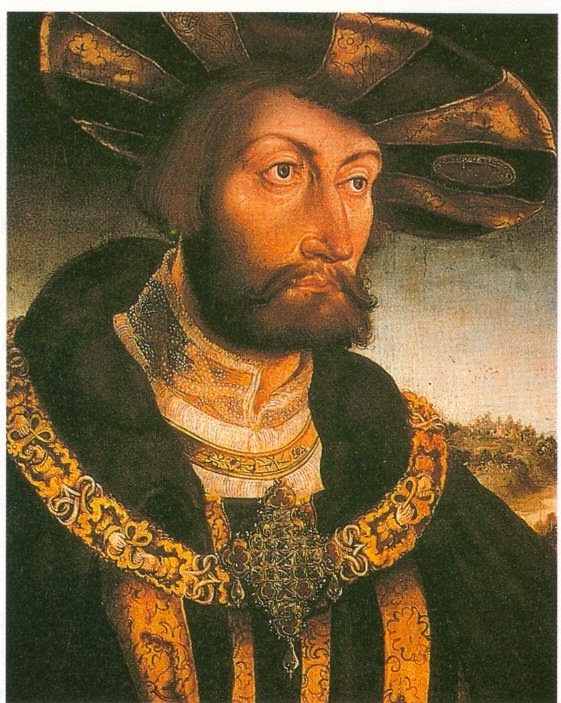 |
| William (Wilhelm) IV, Duke of Bavaria |
Before
the advent of water treatment and water safety laws, water quality was very
poor. It was only use for washing, bathing, but never for human drinking. It
was a custom of the people to drink processed beverages, like wine, ale, and
also for beer. Popularity of beer led into problems in productions. In order to
protect the consumers of beer, two dukes enacted the Purity.
In
Europe, none I more famous for beer than the city of Munich in Bavaria. Famous
Oktoberfest was a testament to its long history of beer tradition. Alongside
beer tradition, the Oktoberfest also celebrates the famous consumer protection
quality standard law called the Reinheitsgebot otherwise known as the Purity
Law.
The
Purity Law could be traced back in 1516. Beer consumption was at its peak.
Commoners and nobility consumed beer to quench their thirst as water was
dangerous and risky to drink. High production of beer, however, led to
problems. Bavarian importation of beer from Northern Germany caused contamination
and impurities. When beer traveled from Northern Germany to Bavaria,
rain and moisture could dilute the beer. When the beer arrived the price
it was sold was not equal to the quality of the traded beer. Another problem
was profiteering of some mischievous beer maker. Some Bavarian beer maker added
impurities such as sugar in order to make beer in a lower quality but with the
same price of pure high quality beer.
Actions
were made to solve impurities and protect beer drinkers. During the 1100’s, the city of
Augsburg outlawed producers of low quality and adulterated beer. In 1290 and
1303, the German city of Nuremberg passed an act that all traded beer must be
made of barley. But none was more influential and more well-known purity law
than that of 1516. On that year, the co-Dukes of Bavaria, William (Wilhelm) IV
and Louis (Ludwig) X enacted a purity law or originally in German,
Surrogatuerbot or Surrogate. The name Reinheitsgebot was only coined in 1918 by
Hans Rauch.
The
Purity Law of 1516 set the standard of lager beer. The law was only applicable
to lager bottom fermented beer. According to law, lager beers that were allowed
were should only be made of barley, hops, and pure clean water. Barley was the only
allowed material in order to save other types of grain, such as rye, for food
production. Hops became an integral part of beer making since 822. Additions
were made to the law as new discoveries were made. In 1857, Louis Pasteur
discovered yeast, which helped in fermentation of beer. Thus it was added to
the least of allowed ingredients in making beer.
The
Purity Law spread throughout the Germany as time went by. In 1871, Otto von
Bismarck wanted Bavaria to join the new united German Empire. He tried to
persuade King Ludwig II of Bavaria. He bribed him by donating for the
King’s fairy tale like castle of Neuschwanstein. But as part of the
deal, Bavaria would join but it must continue the implementation of the
Purity Law. Bismarck agreed. The Purity Law’s expanse was expanded and adopted
by the whole German Empire as a law for the beers. During World War II, Hitler’s conquest
of Czechoslovakia and Greece allowed the Purity Law to be implemented in the
mentioned countries.
The end
of the Reinheitsgebot was during the dawn of a new era for Europe. The creation
of a European Common Market opened home markets and new once across Europe. The
Purity Law, however, was seen as a protectionist law which had to be dismantle
if Germany was to join. And Germany did in 1988.
The
Purity Law set the standard of tradition for over five centuries. It aimed to
protect consumers and set the standard of a daily way of a people. But as time
passes by, so as laws. The lifting of the Purity Law was a small price to pay
for unification of Germany and of Europe.
See also:
Code of HammurabiDecree 770
Nuremberg Laws
Bibliogrpahy:
Boulton, C. Encyclopedia of Brewing. Hoboken: John Wiley & Sons, Inc., 2013.
Edelstein, S. (ed.) Food Science: An Ecological Approach. Massachusetts: Jones & Bartlett Learning, 2014.
Gaab, J. Munich: Hofbrauhaus & History - Beer, Culture, Politics. New York: Peter Lang Publishing, 2008.
Gaab, J. Munich: Hofbrauhaus & History - Beer, Culture, Politics. New York: Peter Lang Publishing, 2008.
Oliver, G. The Oxford Companion to Beer. New York: Oxford University Press, 2012.
.JPG)


.jpg)

No comments:
Post a Comment
Note: Only a member of this blog may post a comment.